 Jewish Family Services is preparing to open a food pantry. Known simply as the JFS Food Pantry, it will officially launch with a kickoff event on Sunday, Oct. 7, during the intermediate days of Sukkot. Details of the event, which will include an education session about hunger in the community, will be announced later.
Jewish Family Services is preparing to open a food pantry. Known simply as the JFS Food Pantry, it will officially launch with a kickoff event on Sunday, Oct. 7, during the intermediate days of Sukkot. Details of the event, which will include an education session about hunger in the community, will be announced later.
The timing of the opening is not coincidental, according to JFS Executive Director Don Goldman.
“Sukkot is a harvest festival, so the holiday is about food,” he explained.
The JFS Food Pantry will be the second Jewish food pantry in the community. Yachad — The Kosher Food Pantry was established in 2004 and is operated by the Chabad House Center. (For more information see below.) Over the years Yachad has coordinated the Simcha Box program, a joint effort between JFS and the Jewish Federation to provide food for Jewish families in need in the area. The Simcha Box partnership will end following the October delivery. JFS will take it over and rename it in November.
Who will the pantry serve?
The JFS Food Pantry will serve anyone who is hungry and works with JFS, Goldman said. These people are often referred to JFS through a partnership with the Jewish Federation of Greater Kansas City after seeking safety net services such as emergency assistance funds. The pantry will serve both Jewish and non-Jewish clients as well as kosher and non-kosher ones.
“Our social workers work with many people both in the Jewish and general community who come to us for a variety of needs,” Goldman said. “The fundamental issue for them is they just can’t pay all their bills to get by, at least for a short period of time.”
In addition to needing help with the bills, many of these same people need food assistance. Some are already on food stamps, but they have learned that food stamps don’t stretch very far. For example, Jewish Council for Public Affairs reports the average food stamp allotment is $31.50 per week, or just $1.50 per meal.
“First of all you have to be very, very poor to qualify for food stamps and even if you do qualify it’s not sufficient food for the month,” Goldman explained.
To receive food pantry benefits, a person must be a JFS client and qualify for the service.
“We have some standards that we generally use for our clients, but the fact is we are not like a big government bureaucracy, so we are very flexible about those guidelines. The fact is everybody’s situation is different. There could be people who are above the poverty line who have extraordinary expenses caused by an illness or a disability who will qualify,” Goldman said.
Anyone who has qualified for special Jewish community safety net services and is receiving services from JFS is already qualified for assistance from the food pantry.
“That’s one of the reasons it makes sense for us to do this,” Goldman said. “To get those funds they are already talking to social workers, they are already coming up with a plan to improve their situation so they will need less help or even no help in the future.”
Goldman said in many cases JFS has helped a client, regardless of religion, by actually purchasing a bag of food for the family.
“That’s not really covering their food needs for the month but it’s helping a little. Then we send them to another place or another food pantry for more assistance,” he said.
Why now?
 JFS is currently sending a lot of clients to other pantries for assistance. Goldman said the thought more and more was, “Why shouldn’t they be able get food from us when they are here?”
JFS is currently sending a lot of clients to other pantries for assistance. Goldman said the thought more and more was, “Why shouldn’t they be able get food from us when they are here?”
Goldman said it’s frankly an oddity that JFS couldn’t help clients with food before. In fact, the majority of the 120 Jewish Family Service agencies across the country already operate a food pantry.
“It’s such a basic need. We’re helping to pay their rent but their kids are hungry. That never made sense to us,” Goldman said.
Goldman pointed out that JFS has been tangentially in the food business for quite some time.
“We have done holiday food projects around Passover and Rosh Hashanah for many years. In addition, in the last few years we have gotten money from the federal government as part of its emergency food program to help distribute food for our clients. Finally almost three years ago JFS inherited the Simcha Box program from the Federation, which had created it in partnership with JFS and Yachad about 10 years ago,” Goldman said.
Simcha Box, according to Goldman, originally was a food delivery program for people who couldn’t get out of their homes and needed food assistance. However it has grown to be a program that has served many people who have lost jobs or are having other financial troubles.
Community partnerships
The JFS Food Pantry will be a member of Harvesters Community Food Network. A number of others organizations in the Jewish community, including most of the local congregations, have also expressed a desire to work with the pantry.
“I’ve met with all the rabbis in town and the Rabbinical Association and everybody is very excited about the pantry,” Goldman said. “Most of the congregations in town are planning High Holiday food drives to support the pantry, including a number of congregations that have not done High Holiday food drives before or in recent times.”
Several local grocers plan to assist the pantry including Hen House at 117th and Roe, Price Chopper in Rosanna Square and Whole Foods at 119th and Lamar. The Mitzvah Garden will also provide some produce from its garden.
“Liberty Fruit has very generously provided fruit and vegetables for the holiday programs and Simcha Boxes in the past and has indicated they will continue to support these programs,” Goldman added.
Goldman said a core part of pantry funding is a redirection of funds from Simcha Box, which are provided by Jewish Heritage Foundation and Menorah Legacy Foundation. JFS also received a new grant from United Way from its United for Hope project, which is helping to provide the infrastructure for the pantry as well as funds for food for non-Jews who use the pantry.
How it will work?
The pantry will be run by Adrienne Kizer, who has been with the agency for more than 11 years. Her new title is director of food pantry and community projects.
The pantry will offer both kosher and non-kosher options.
“We surveyed our current Simcha Box clients and somewhere between 10 and 15 percent of those keep kosher. So in the past we had been providing 100 percent kosher food to 85 percent of people who don’t keep kosher. That has huge implications on the cost of the program,” Goldman said.
Now the pantry will be able to purchase a variety of food it couldn’t get in the past from Harvesters.
“It’s impossible to get kosher hechshered (kosher certified) tuna or green beans from Harvesters. So when we provided that before, we had to go and buy those things at retail cost as opposed to what you can get it for from Harvesters, which is a very small handling fee,” Goldman said.
The kosher section of the pantry will be Vaad supervised.
“The Vaad will give us procedures and help train our volunteers so that we can maintain high kosher standards,” Kizer said.
Goldman reiterated that the pantry’s kosher section is very important to JFS.
“Anybody who requests kosher can have kosher food and the kosher food will be at least equal in quality and quantity to the non-kosher food, whether we have to buy some of that at retail or not. The food drives will be really important for us to get and stock those shelves,” Goldman said.
The pantry will be located in the basement of the Jewish Community Campus. A satellite location will be available in the Missouri office for people who use that location for privacy reasons or because it is located on the bus route.
The pantry will be open by appointment and qualified clients will be assisted by a volunteer as they shop. There will be no walk-in hours so visitors to the Jewish Community Campus will never see a line of people waiting to enter the food pantry.
Kizer pointed out that JFS will need volunteers to serve the entire program, doing such tasks as stocking the shelves, assisting the clients and delivering food to those who can’t get it themselves.
JFS Food Pantry
Home Delivery
The establishment of the JFS Food Pantry is necessitating a change in the Simcha Box program. In November the name will change to JFS Food Pantry Home Delivery. It will no longer be an exclusively kosher program, but kosher food will be available for those who request it. Delivery will be provided to all clients who request it, but in general Goldman believes the program will deliver fewer boxes than in the past.
“We expect that those that can get to the pantry will choose to shop here so they can personally select their own food.
However it will be their choice if they want to continue receiving a delivery,” Goldman said.
For more information regarding the JFS Food Pantry and JFS Food Pantry Home Delivery or to become a volunteer, contact JFS at 913-327-8250 or .
Yachad — The Kosher Food Pantry to continue operating
 Now that Jewish Family Services is opening a food pantry for the Jewish community, questions have arisen as to the future of Yachad — The Kosher Food Pantry run through the auspices of the Chabad House Center. According to an email sent to its supporters in early August, Yachad plans to continue operating.
Now that Jewish Family Services is opening a food pantry for the Jewish community, questions have arisen as to the future of Yachad — The Kosher Food Pantry run through the auspices of the Chabad House Center. According to an email sent to its supporters in early August, Yachad plans to continue operating.
“Concerns have been voiced that Yachad is shutting its doors. We hasten to assure you that this is not happening,” stated the email, signed by Rabbi Mendy Wineberg and Sherrill Parkhurst, the volunteer manager of the pantry.
Yachad was started by Rabbi Wineberg and his brother Zev in 1998. Rabbi Wineberg said in the email that he “is as devoted to this project today as he was then.” The email pointed out the biggest difference between the two food pantries in the Jewish community.
“Chabad House will always ensure that the Jewish community will have a kosher place to feed their bodies as well as their souls. We are a kosher pantry — the only one serving the entire Midwest.”
In a conversation with The Chronicle, Rabbi Wineberg also reiterated that Yachad will continue to assist anyone who needs it, regardless of their religion and without meeting any type of qualifying standards.
“We are truly a walk-in pantry. We don’t ask for any financial information,” he said. “We don’t care what the situation is. We want to make sure anyone who is hungry is taken care of in a truly private manner.”
Rabbi Wineberg believes a kosher food pantry is important to the body and the soul.
“Times have been rough economically for our city. For those who experience distress, the spiritual aspect of eating kosher food is unique in its ability to foster resilience and inner strength.”
After October, Yachad will no longer be involved with the Simcha Box Program, a joint project between Yachad, Jewish Federation and JFS, which has been operating since 2004. The program will now be run by JFS. It will no longer be a kosher program, but a kosher option will be offered to those who request it.
“While this was a Federation funded program, it was Yachad’s dedicated volunteers who ran the entire program, from purchasing food, to packing the boxes, through the final distribution to the clients,” Rabbi Wineberg and Parkhurst wrote.
As Yachad makes these changes, it thanked its volunteers.
“Wonderful relationships have been formed with our volunteers and also between volunteers and clients. We are very grateful for this, and, particularly for the fact that together we have helped ease the hunger of those less fortunate; moreover, in a truly dignified manner. We did all this with true love, compassion and empathy, while adhering to the highest kashrut standards without compromise.”
“We want to give a special thanks to Joan Fogel and Nancy Eisner. Without their vision and hard work there would never have been a Simcha Box Program.”
In the fall, Yachad will be offering new services. In cooperation with Harvesters, it will be hosting nutrition and cooking classes.
“In addition, because we are committed to feeding the soul as well as the body, we are going to be offering coaching to anyone who would like to understand more of the mystical and/or practical applications of kashrut. Group classes are forming, as well as one-on-one tutoring. In preparation for the upcoming High Holidays, Yachad encourages all who are connected with us in any way to take on one new kosher commitment and to encourage their friends and family members to do the same.”
For more information about Yachad, call 913-649-4852.
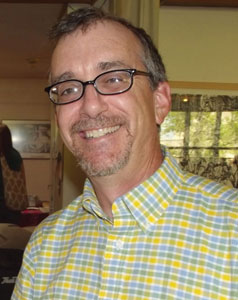 The Lawrence Jewish Community Congregation has hired Rabbi Moti Rieber as the community’s part-time rabbi. The appointment became effective Aug.12.
The Lawrence Jewish Community Congregation has hired Rabbi Moti Rieber as the community’s part-time rabbi. The appointment became effective Aug.12.


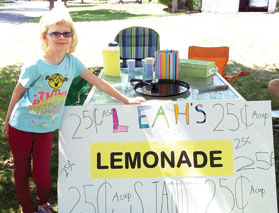
 Jewish Family Services is preparing to open a food pantry. Known simply as the JFS Food Pantry, it will officially launch with a kickoff event on Sunday, Oct. 7, during the intermediate days of Sukkot. Details of the event, which will include an education session about hunger in the community, will be announced later.
Jewish Family Services is preparing to open a food pantry. Known simply as the JFS Food Pantry, it will officially launch with a kickoff event on Sunday, Oct. 7, during the intermediate days of Sukkot. Details of the event, which will include an education session about hunger in the community, will be announced later. JFS is currently sending a lot of clients to other pantries for assistance. Goldman said the thought more and more was, “Why shouldn’t they be able get food from us when they are here?”
JFS is currently sending a lot of clients to other pantries for assistance. Goldman said the thought more and more was, “Why shouldn’t they be able get food from us when they are here?” Now that Jewish Family Services is opening a food pantry for the Jewish community, questions have arisen as to the future of Yachad — The Kosher Food Pantry run through the auspices of the Chabad House Center. According to an email sent to its supporters in early August, Yachad plans to continue operating.
Now that Jewish Family Services is opening a food pantry for the Jewish community, questions have arisen as to the future of Yachad — The Kosher Food Pantry run through the auspices of the Chabad House Center. According to an email sent to its supporters in early August, Yachad plans to continue operating.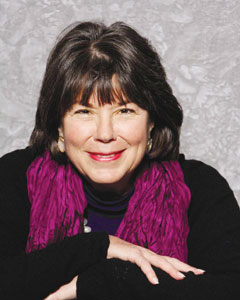 Next week Patricia Werthan Uhlmann will be recognized, along with 78 other Jewish women, as a Kipnis-Wilson/Friedland Award recipient. Established in 2004, The Kipnis-Wilson/Friedland Award recognizes extraordinary women who have set a high standard for philanthropy and volunteerism. These women have been chosen by their communities as “women of valor” with lifetimes of commitment to the Jewish world. The award ceremony will be held at the International Lion of Judah conference in New York in which 18 people from Kansas City will be in attendance.
Next week Patricia Werthan Uhlmann will be recognized, along with 78 other Jewish women, as a Kipnis-Wilson/Friedland Award recipient. Established in 2004, The Kipnis-Wilson/Friedland Award recognizes extraordinary women who have set a high standard for philanthropy and volunteerism. These women have been chosen by their communities as “women of valor” with lifetimes of commitment to the Jewish world. The award ceremony will be held at the International Lion of Judah conference in New York in which 18 people from Kansas City will be in attendance.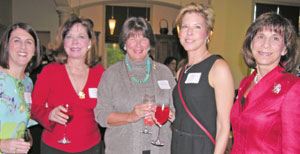 Jewish Federation Executive Vice President and CEO Todd Stettner said Uhlmann’s efforts personify the agency’s mission to sustain and enhance Jewish life at home and around the world.
Jewish Federation Executive Vice President and CEO Todd Stettner said Uhlmann’s efforts personify the agency’s mission to sustain and enhance Jewish life at home and around the world.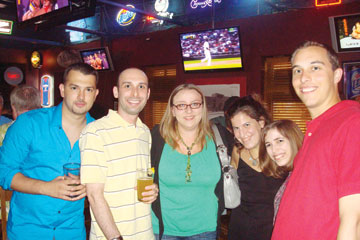 When Becca Winner moved back to Kansas City last year, she was looking to socialize with a group of young Jewish professionals in their 20s and 30s, like the groups she’d been part of in Washington, D.C. At the same time, local community workers were trying to re-engage that same set.
When Becca Winner moved back to Kansas City last year, she was looking to socialize with a group of young Jewish professionals in their 20s and 30s, like the groups she’d been part of in Washington, D.C. At the same time, local community workers were trying to re-engage that same set. Athletes around the world just competed for the gold this summer and the Heritage Center of the Jewish Community Center has achieved gold as well — accreditation from the National Institute of Senior Centers.
Athletes around the world just competed for the gold this summer and the Heritage Center of the Jewish Community Center has achieved gold as well — accreditation from the National Institute of Senior Centers.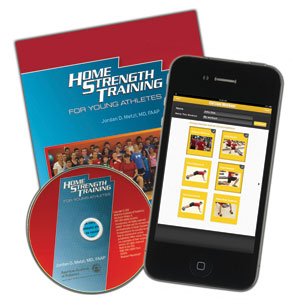 METZL RELEASES NEW BOOK — KC native and sports medical expert Dr. Jordan Metzl has launched his second book this year, this time in conjunction with the American Academy of Pediatrics called “Home Strength Training for Young Athletes.” Once again he was featured on the “Today” show. The first-of-its-kind instructional program, which includes DVD, flash cards and apps, encourages parents and coaches to take an active role in the prevention of sports injuries in young athletes. This program is aimed for kids between the ages of 8 and 18 to use at home. On “Today,” Dr. Metzl said “we know strength training makes stronger bones and stronger muscles. The idea of this program is for parents to actually train with their kids at home.” He points out that these types of exercises are also good for parents. “If you are a 45-year-old mom with an aching back, these exercises are as beneficial for you as they are for your 10- or 12-year-old.” Dr. Metzl has been regularly voted among New York’s top sports medicine doctors by New York magazine.
METZL RELEASES NEW BOOK — KC native and sports medical expert Dr. Jordan Metzl has launched his second book this year, this time in conjunction with the American Academy of Pediatrics called “Home Strength Training for Young Athletes.” Once again he was featured on the “Today” show. The first-of-its-kind instructional program, which includes DVD, flash cards and apps, encourages parents and coaches to take an active role in the prevention of sports injuries in young athletes. This program is aimed for kids between the ages of 8 and 18 to use at home. On “Today,” Dr. Metzl said “we know strength training makes stronger bones and stronger muscles. The idea of this program is for parents to actually train with their kids at home.” He points out that these types of exercises are also good for parents. “If you are a 45-year-old mom with an aching back, these exercises are as beneficial for you as they are for your 10- or 12-year-old.” Dr. Metzl has been regularly voted among New York’s top sports medicine doctors by New York magazine. 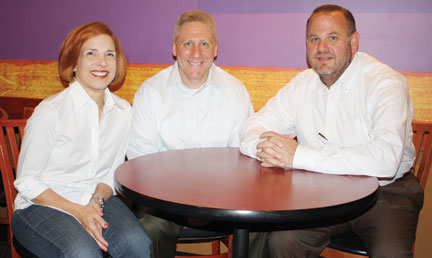 Over the years KU Hillel has become known across the country for its quality programs of all types — including Israel, leadership training, outreach and engagement, social justice and religious. Perhaps the most well-known of these programs, and most certainly the largest, is Rock Chalk Shabbat. Last year the KU Hillel board of directors, led by its president, Susie Greenberg, decided to use the popular event as a fundraiser. This year the fundraising campaign is being co-chaired by board members Craig Kolkin and Brad Smuckler.
Over the years KU Hillel has become known across the country for its quality programs of all types — including Israel, leadership training, outreach and engagement, social justice and religious. Perhaps the most well-known of these programs, and most certainly the largest, is Rock Chalk Shabbat. Last year the KU Hillel board of directors, led by its president, Susie Greenberg, decided to use the popular event as a fundraiser. This year the fundraising campaign is being co-chaired by board members Craig Kolkin and Brad Smuckler.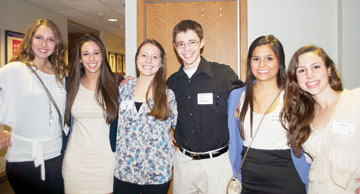 Greenberg said Rock Chalk Shabbat has become an opportunity for parents to see what their students are doing at KU. Turning this event into a fundraiser gives parents and others the opportunity to support KU Hillel’s great programming.
Greenberg said Rock Chalk Shabbat has become an opportunity for parents to see what their students are doing at KU. Turning this event into a fundraiser gives parents and others the opportunity to support KU Hillel’s great programming.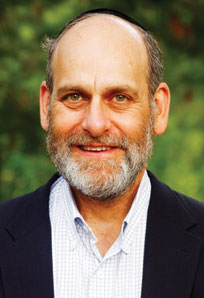 Being a scholar of Jewish philosophy didn’t come naturally to Alan Morinis, but when he discovered the tradition of Mussar, he knew he’d found a way to connect. Morinis, who founded the Mussar Institute in Vancouver, will be speaking at the community-wide Selichot service at 9 p.m. Saturday, Sept. 8, at Congregation Beth Torah on “the experience of yirah as the basis for a prayerful life.”
Being a scholar of Jewish philosophy didn’t come naturally to Alan Morinis, but when he discovered the tradition of Mussar, he knew he’d found a way to connect. Morinis, who founded the Mussar Institute in Vancouver, will be speaking at the community-wide Selichot service at 9 p.m. Saturday, Sept. 8, at Congregation Beth Torah on “the experience of yirah as the basis for a prayerful life.”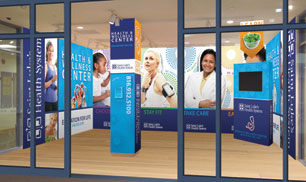 Build-out is under way at the new Saint Luke’s Health & Wellness Center, located in the former gallery space adjacent to the lobby of the Jewish Community Campus. The Health & Wellness Center, when complete, will be a permanent venue for delivering health education.
Build-out is under way at the new Saint Luke’s Health & Wellness Center, located in the former gallery space adjacent to the lobby of the Jewish Community Campus. The Health & Wellness Center, when complete, will be a permanent venue for delivering health education.